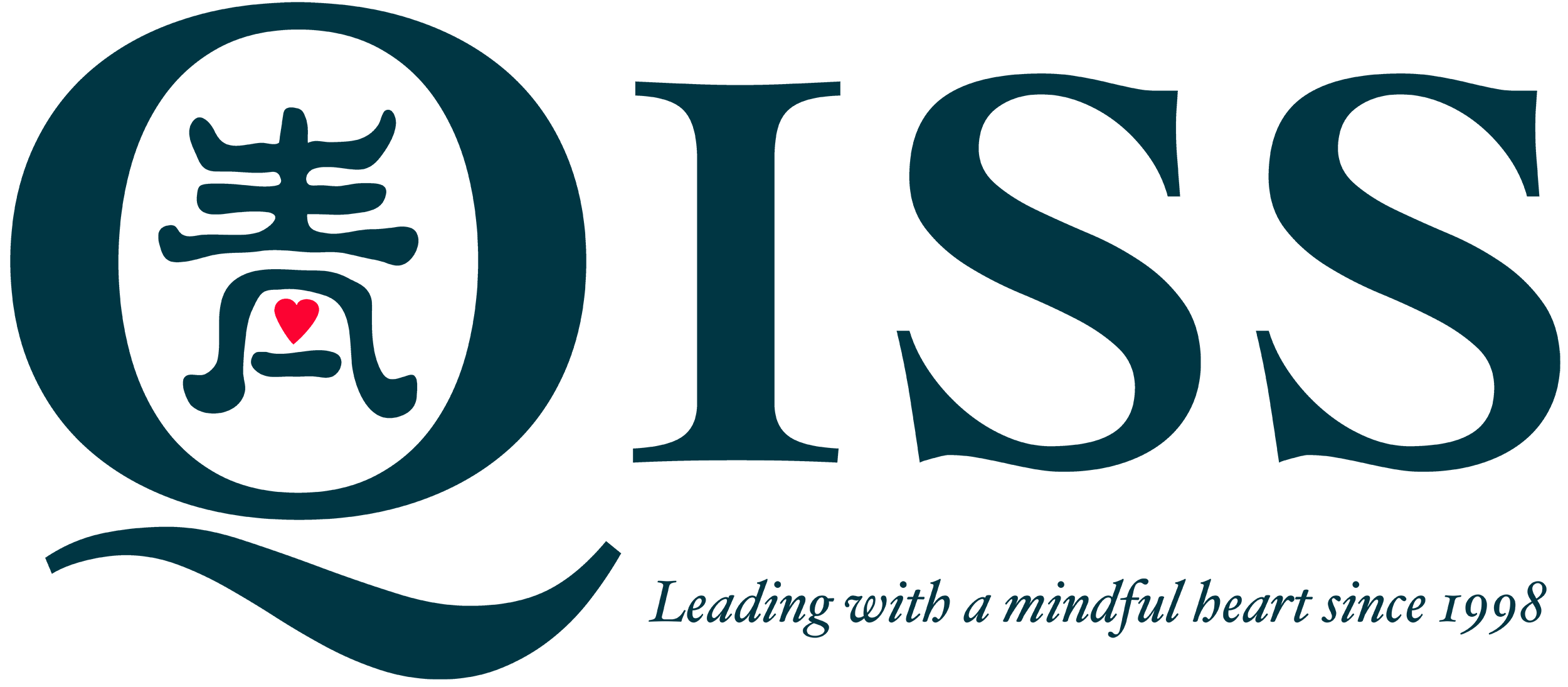WELLBEING
Wellbeing
Wellbeing is at the heart of learning at QISS! Although it can be hard to define wellbeing, we think that it encompasses “the physical, social and psychological state needed to positively meet life’s challenges.” Our approach to well-being involves a wide range of practises and learning engagements underpinned by the world renowned Leader in Me programme from Dr Stephen Covey.
And supported by:
- WASC – The Accrediting Commission for Schools, Western Association of Schools and Colleges (WASC) believes that the goal of any school should be to provide for successful student learning.
- CASEL: Collaborative for Academic, Social, and Emotional Learning Organisation
- ASCA Mindsets & Behaviors for Students Success: academic, career and social/emotional development. These domains promote mindsets and behaviors that enhance the learning process and create a culture of college and career readiness for all students
- Restorative Practices: Building Positive Relationships
What do we do?
We are proud to develop student, staff and community wellbeing through a considered Social and Emotional school-wide learning programme based on the 5 paradigms of the Leader in Me:
- Leadership: Everyone can be a leader
- Potential: Everyone has genius
- Change: Change starts with me
- Motivation: Empower students to lead their own learning
- Education: Educators and families partner to develop the whole person
Social and emotional learning (SEL) is an integral part of education and human development. SEL is the process through which all young people and adults acquire and apply the knowledge, skills, and attitudes to develop healthy identities, manage emotions and achieve personal and collective goals, feel and show empathy for others, establish and maintain supportive relationships, and make responsible and caring decisions. CASEL 2021
At QISS we believe that SEL happens throughout the day – in all classes, in our playgrounds and community spaces, and with all teachers. SEL is one of the most rewarding extrinsic and intrinsic motivators for learning and it is directly linked to academic success. By implementing SEL into our daily routines we create a safe and compassionate environment which fosters deeper connections and mental and academic growth for students, teachers and parents!
Well-being is also visible in our core curriculum and can be seen in action in the classroom, across the school, and in co-curricular ASAP (After-school Activity Programme).
Well-being is also a focus for our staff. We have a comprehensive annual well-being programme which includes activities, events, personal individual support and many flexible working practises to support the wellbeing of our staff.
How do we do it?
- We measure our SEL programme using the CASEL Competencies and the ASCA Mindsets and Behaviors as criteria.
- We teach a well-being and Leader in Me goal in every unit of inquiry
- We host parent and student workshops themed around emotional well-being and other supportive community events.
- We host monthly PEP (Parent Education Partnership) talks on topics relevant to student wellbeing
Why do we do it?
The QISS Values are essential for us in building wellbeing and developing an understanding of our goal for positive education and Leading With a Mindful Heart.
Counseling Program at QISS
The QISS Counseling Program is based on the belief that education involves the development of the whole person (i.e. social, emotional, intellectual, physical, and spiritual aspects) and that these aspects should remain in balance in well adjusted individuals. We believe that each student possesses a unique set of gifts and talents. When self acceptance and confidence in one’s abilities are present, students are empowered to use their gifts to contribute as positive, responsible world citizens and to strive for personal excellence.
The role of the school counselor is to support students as they develop into whole persons and to promote sensitivity to children’s social and emotional needs within the academic community. QISS counseling services are accessible to all students, parents and staff. Counseling services are provided in an environment that is welcoming, safe and caring.
Ethical Standards
The QISS Counselors adhere to the Ethical Standards of the American School Counselor Association. They are committed to protecting the rights of students and the privacy of families, to providing counseling services which respect individuals, their culture, and their values, within an atmosphere of confidentiality.
Lower School Counseling Services
In Lower School the counselor helps students:
- Individually: build confidence in themselves, learn appropriate and effective behaviors, and be able to express and manage their feelings.
- In small groups: promote self esteem, smooth the transition between schools, friendship and other social skills.
- In classrooms: promote positive attitudes, respect and the ability to get along with others, responsible behaviors, self control, good listening and communications skills.
The Counselor helps parents by:
- Promoting positive partnerships between home and school.
- Consulting on issues affecting their child’s academic, social, or emotional development.
- Presenting workshops on topics of interest such as discipline or promoting self esteem.
- Making referrals to community based services and tutoring.
The Counselor also helps by:
- Ensuring that students are placed in the most appropriate learning environment.
- Giving teachers information and strategies to ensure students will be successful in school.
- Promoting a positive school climate.
The Middle School Counseling Program
In Middle School the Counselor helps students by:
- Meeting individually with students having academic, social/emotional, or behavioral difficulties.
- Meeting with small groups of students to resolve conflicts and improve peer relationships.
- Orienting new students and assisting with their adjustment to school.
- Coordinating events promoting the social emotional development of all students.
The Counselor helps parents by:
- Consulting on issues affecting their child’s academic, social, or emotional growth.
- Facilitating positive communication between home and school.
- Presenting workshops on topics of interest to parents of early adolescents.
- Providing information related to summer opportunities for youth.
- Referring to tutors and local mental health service providers.
The Counselor also helps by:
- Working with teachers to support students’ academic, social, and emotional growth.
- Promoting a positive learning environment throughout the school.
The High School Counseling Program
In High School the Counselor helps students prepare for the future by:
- Planning academic programs for grades 9-12.
- Exploring career interests and possibilities.
- Providing information about appropriate summer learning opportunities.
- Advising for college admissions testing.
- Guiding through the university admissions and selection process.
- Liaising with college admissions officers.
The Counselor supports academic growth by:
- Assisting students with strategies to address academic problems.
- Coordinating with teachers to enhance academic success of individual students.
- Recommending tutors from the community.
The Counselor supports personal growth and development by:
- Assisting students with adjustment issues.
- Providing short term personal counseling.
- Consulting with teachers and parents concerning the social/emotional needs of students.
- Making referrals to outside mental health providers.



